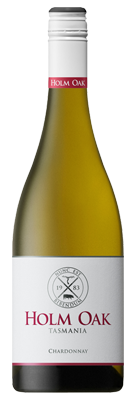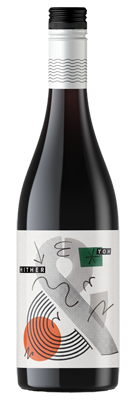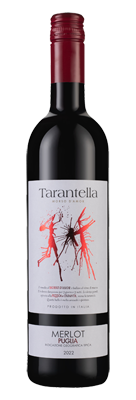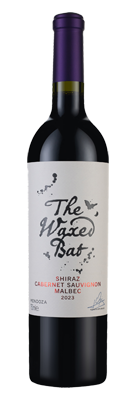Filter by
- $28.00 RRPfrom $19.99 when you mix 12+
- Tassie Chardonnay from an excellent, 5-star family estate, with a raft of high scores up to 96pts.$40.00 RRPfrom $35.99 when you mix 12+
- Dark, earthy Shiraz meets youthful, exotic and three fragrant Rhône Valley white wine varieties.$200.00 RRPfrom $189.99 when you mix 12+
- Food-friendly 95pt McLaren Vale Grenache from a 5-star winery.$42.00 RRPfrom $42.00 when you mix 12+
- "A Tour de Force. 94pt" (Ned Goodwin, Halliday) Petite Sirah (aka Durif) from Elena Brooks.$120.00 RRPfrom $110.00 when you mix 12+
- High-pointed Shiraz from superb Hither & Yon. "Very nice indeed... Compelling value..." (Halliday)$29.00 RRPfrom $23.99 when you mix 12+
- Food-friendly, well-balanced 93pt, Great Value McLaren Vale Grenache "Distinctive. Good." (Halliday)$33.00 RRPfrom $29.99 when you mix 12+
- 94pt Adelaide Hills blue fruit Shiraz from ‘sustainability-focussed’ The Lane.$70.00 RRPfrom $65.99 when you mix 12+
- High scoring Grenache from a McLaren Vale family with a centuries old winemaking heritage...$35.00 RRPfrom $22.99 when you mix 12+
- A very tasty McLaren Vale Cabernet Malbec lies behind this popular and memorable label!$25.00 RRPfrom $17.99 when you mix 12+
- $30.00 RRPfrom $21.99 when you mix 12+
- "Outstanding vlaue" Cabernet with scores of 92 and 95pts.$22.00 RRPfrom $19.99 when you mix 12+
- Thrilling, 91pt mineral-fresh and citrusy-peach Albariño, hero grape of Rías Baixas.$45.00 RRPfrom $37.99 when you mix 12+
- Full-throttle flavour in this smooth, ripe Cab Shiraz made by the talented RedHeads$24.00 RRPfrom $16.99 when you mix 12+
- A gorgeous, juicy popular offering from a five-star WA estate.$24.00 RRPfrom $17.99 when you mix 12+
- As sensuous as the dance after which it's named, this Merlot is full of spiced damson pleasure.$24.00 RRPfrom $17.99 when you mix 12+
- A popular, Gold-winning Argentine red with spicy Shiraz, vibrant Cabernet and dark, velvety Malbec.$26.00 RRP$16.99 when you mix 12+
- A succulent 94pt Sangiovese from Clare Valley’s dynamic Claymore Wines team.$29.99 RRP$21.99 when you mix 12+
- New exclusive Malbec from Clare Valley's superb Jim Barry estate.$35.00 RRPfrom $23.99 when you mix 12+
- Fresh Adelaide Hills Chardonnay from cricket legend Ricky Ponting and winemaker Ben Riggs.$25.00 RRPfrom $23.99 when you mix 12+
- 94pt, Great Value complex Hunter Valley Semillon from the first rate Margan Family Estate.$40.00 RRPfrom $32.99 when you mix 12+
- Gold, 95pts, Great Value – a very special Grenache Mourvedre blend from the excellent Rob Mack.$38.00 RRPfrom $38.00 when you mix 12+
- Warm, ripe Rhône red from an under-the-radar region and a Châteauneuf-du-Pape winemaker.$25.00 RRPfrom $17.99 when you mix 12+
- A "lovely contemporary Barossa Reserve Shiraz" (Halliday) with three Golds and 2 x 95pt scores.$50.00 RRPfrom $45.99 when you mix 12+
Wine FAQs
What is vegetarian wine?
Although wine is made from fermented grapes, it isn’t always vegetarian-friendly. Although grapes are the main ingredient in wine, animal-based products are often used during the winemaking process to clarify and stabilise the wine, before it is bottled. However, there are alternative products that can be used for this, allowing for the production of vegetarian-friendly wines.
Why is wine not vegetarian?
Wine isn’t always vegetarian, and that’s down to the ‘fining’ process. This clarifies wine to remove any impurities or suspended solids that can impact its clarity and stability. Winemakers typically use animal-derived products to do this, and that can make a wine not strictly a vegetarian drink.
The substances don’t remain in the wine – they are removed along with the particles they help to clear out. Depending on the type of fining agent use, the resulting wine may not be suitable for vegetarians.
Traditional fining agents can include:
Gelatin – derived from animal bones and connective tissues
Isinglass – made from fish bladders
Egg whites (Albumin) – used particularly in red wines
Casein – a protein derived from milk.
If either of the first two are used, the wine is not vegetarian.
If any of the above are used, the wine is not vegan.
What’s the difference between vegan and vegetarian wines?
Rather than traditional fining agents such as gelatin and isinglass, vegan wines are made using alternative agents.
These can include:
Activated charcoal
Silica gel (a form of silicon dioxide)
Pea protein
Bentonite (a type of clay with strong absorptive properties)
While a vegetarian diet involves eating plant-based foods and avoiding meat and fish products, some vegetarians eat eggs and milk. Wine can be included in a vegetarian diet as long as the fining agents used are also suitable for vegetarians.
As fining agents aren’t classified as ingredients and, therefore, are not listed on a wine’s label, you may wish to choose a wine labelled as vegan to be sure of its suitability.
How do you know if a wine is vegetarian?
Look for a wine labelled as vegetarian or bearing a vegetarian symbol or logo. Occasionally, wineries may even specify the fining agents they’ve used in their winemaking process online.
On our website, you can check the information section of the wine description to see if a wine is vegetarian.
Or you can simply browse the wines on this page.
Do vegetarian wines taste better?
How a wine tastes is influenced by many factors, principally the grape variety used, the soil and climate in which grapes are grown, winemaking techniques and how the wine is aged.
The same is true of vegetarian red wine and white wine.
Traditional animal-derived fining agents and their vegetarian alternatives are used to clarify and stabilise wine – not to impart flavour. They are used in small amounts and are removed from the wine along with the impurities they clarify.
Consequently, the choice of fining agent usually has a minimal impact on the taste of the wine.
Some winemakers choose not to fine or filter their wines at all. These wines might present different flavours compared to conventionally produced wines, but this is related to the overall winemaking philosophy and methods, not specifically whether the wine is vegetarian.
Is vegetarian wine popular in Australia?
Vegetarian wine is becoming more popular in Australia as consumers become more aware of the impact their choices have on their health and the environment. This has led to a rise in demand for vegetarian products, including wine. Some people prefer vegetarian wine due to ethical concerns about the use of animal-derived products in the winemaking process.
Australia’s thriving wine industry has recognised and supported this trend by producing more wines using vegetarian-friendly methods.
How can I pair vegetarian wine with food?
No vegetarian dish would be complete without a delicious vegetarian wine to pair with it.
Pairing vegetarian wines with food follows the same rules as traditional food and wine pairings. Your focus should be on matching the wine’s characteristics with the flavours and textures of the dish. For example, a crisp, zesty Sauvignon Blanc pairs wonderfully with a fresh, crunchy green salad or a tangy goat cheese tart.
A full-bodied Cabernet Sauvignon with robust tannins and dark fruit notes would work well with a rich, hearty dish like mushroom and lentil stew or vegetable lasagne. The wine provides a delicious balance to the earthiness of these dishes.
Finish off your feast with a glass of late-harvest Riesling paired with a slice of apple strudel – the bright acidity and delicate floral notes of a Riesling would beautifully balance the richness of the dessert. Alternatively, try an Aussie Sparkling wine such as The Black Pig Sparkling White or Howard Vineyard Sparkling Pinot Noir Chardonnay with a tropical fruit Pavlova. The effervescence and vibrant fruit flavours can cut through the sweetness of the meringue and fresh fruit.



























